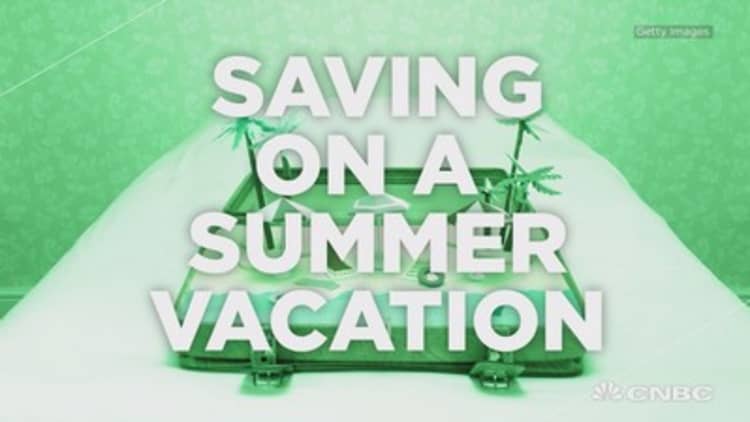



Studying abroad isn't cheap—even with the strong U.S. dollar. The price tag for a semester abroad can range from a few thousand dollars to more than $15,000, depending on the cost of the university's program, airfare and accommodations abroad. And that's not including day-to-day expenses.
But a little legwork now can help mitigate the costs for students studying abroad this fall.
Set a realistic budget.
Setting a budget ahead of time can help keep incidental costs down. To get the most realistic budget estimates, research the cost of living in the home country and talk to classmates who've studied there. It's also wise to set a little extra money aside initially in case budget adjustments need to be made later.
GoOverseas.com provides cost-of-living data for the top 10 most popular countries for studying abroad.
Contact credit card issuers and banks.
"Find out if banks levy international transaction fees, which vary from card to card and ATM to ATM," said Eric Singer, interim associate provost of international studies at Goucher College.
Ask the banks and credit card issuers about the availability of ATMs in the host country and what kind of charges they levy against using the card. Planning fewer transactions and getting a checking account that refunds ATM withdrawal fees can help, said Jorge Padilla, a certified financial planner with The Lubitz Financial Group in Miami.
Use credit cards that won't charge you extra abroad.
Look for credit cards with low or no foreign transaction fees. The Chase Sapphire Preferred credit card, for example, has no foreign transaction fees and the annual fee is waived during the first year, Padilla said. CapitalOne also has a few credit cards that have no foreign transaction or annual fees.
Ask your credit card issuers what international fees they charge and how to avoid them. You can also use websites, such as CardHub.com and CreditCards.com, to compare charges and annual fees for various credit cards.
Plan ahead when using cash.
Even when studying abroad, cash is still king. But give yourself "time to plan for possible exchange rate movements," Padilla said. "When you need the money right away you need to take whatever the exchange rate is at the time and have no choices. With more time to plan, you may be able to monitor for a more favorable exchange rate."
Lori Citti, Johns Hopkins University's director of study abroad, advises students to take out enough cash to live on for a few weeks. Though you'll need to carry small amounts day-to-day and store the rest with your valuables, having cash on hand will decrease your dependency on ATMs and limit transaction fees.
And the savings generated by minimizing those fees can help to stretch a studying abroad budget even further.





